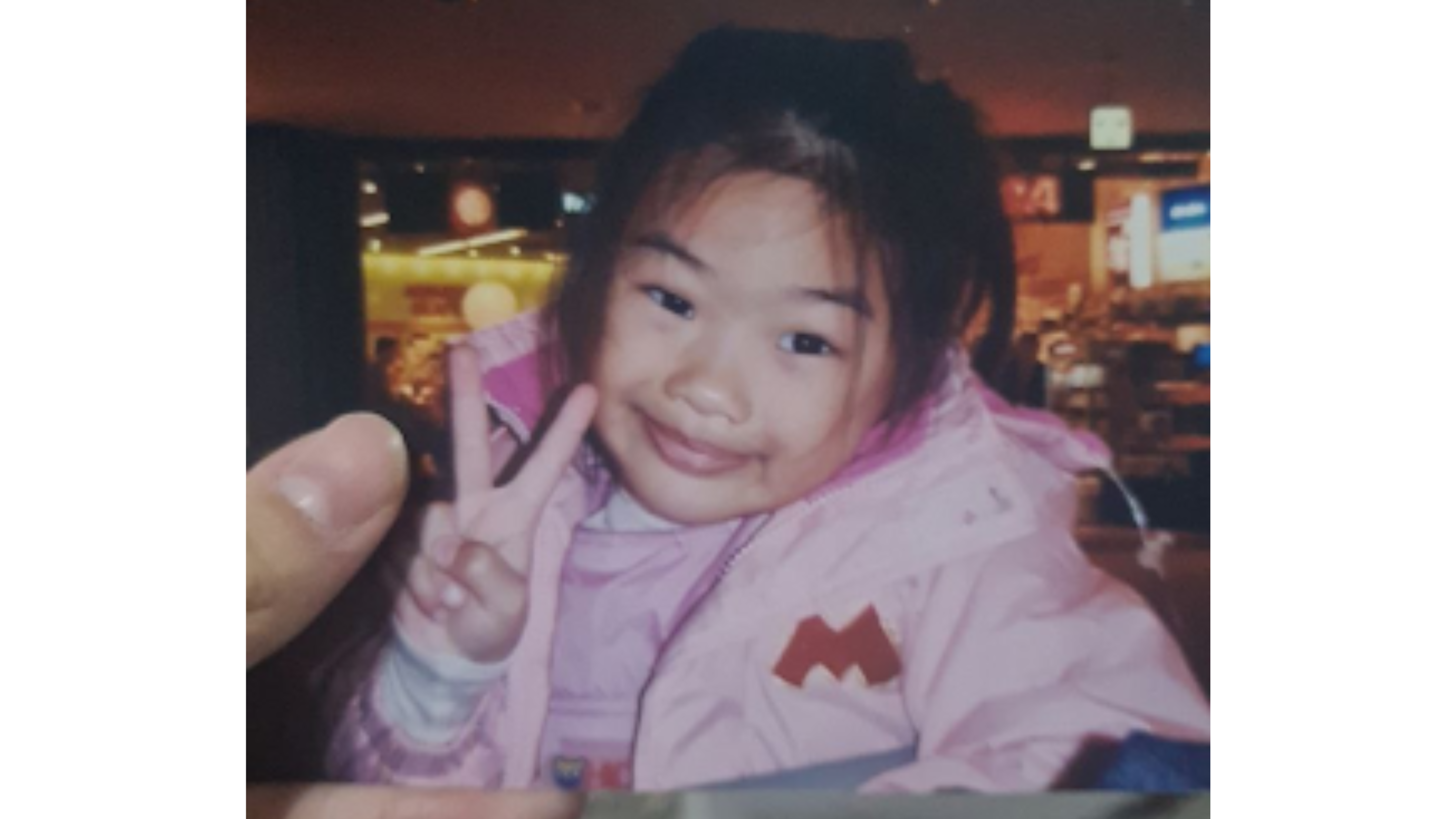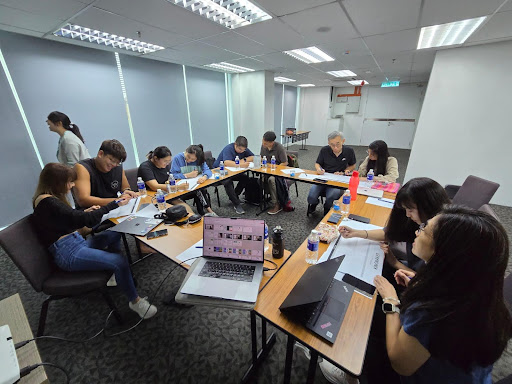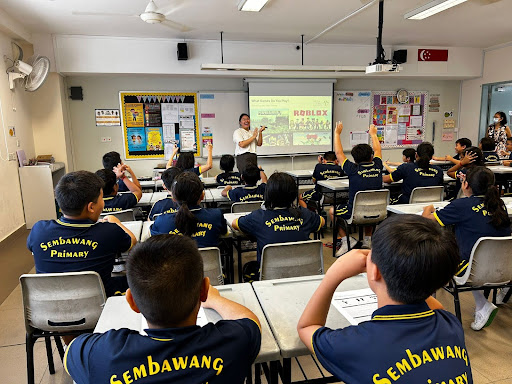Growing Up with the 2 Rarest Talent Themes in the World
Bossy, selfish, arrogant. These are the names I have been called growing up. The young girl who refused to allow her parents to help her wear her shoes, who ran and roughhoused with her Primary 1 classmates, who didn’t quite understand why others were afraid of her even when they never spoke to her before, actually had the Command and Self-Assurance talents. With both talents amongst the rarest in the world, it’s no wonder that there are many misconceptions about these talents – much less how they work together!

Me, aged 4, with my #Self-Assurance pose.
“Mama, I thought Kor (older brother) said he wanted to eat Western food, then Papa said eat chicken rice. Why can’t we all go to the hawker center (food center) and then we can all eat what we want and then we don’t need to fight over where to eat already.”
“Mei mei (me, the younger sister), don’t question, just follow.”
“But if we just follow one person then everyone will be unhappy because we will just fight in the end. We should –”
“Just follow, mei mei.”
I was pretty fearless, which was a blessing when I was a child but became worrisome for my parents as I grew up.
“Mei mei, you are always outside doing your volunteer and your CCA thing, you need to spend more time on your studies. Later you cannot go the course you want then how?”
“Ma, academics are not the only factor for University already. All my extracurricular activities are helpful one lah. No need to worry.”
My bluntness and seeming lack of brain-to-mouth filter was my Command talent in action. As someone who demands clarity in the things I do, I get frustrated when guidelines or standards are unclear. My Command talent will then cause me to confront others who can provide me with more details, typically leaders or superiors. My Self-Assurance talent then adds another layer of certainty to my words, as this talent pushes me to value my own views and be confident in them. As someone with both of these talents…well safe to say we are nothing short of being assertive and persistent in what we aim for. Or as my straightforward nature will think of, simply very “intense” people. My incredible vocabulary aside, I was pretty misunderstood all throughout my life due to my Command and Self-Assurance talents. I could come off as egoistic and conflict-seeking – not quite what anyone would aim to be in your teenage years when all you want to do is fit in.
While I could never see my talents as talents, there were a few others who did see value in them (and by extension, me) before the world of CliftonStrengths was even introduced to me. I was in the Symphonic Band in Secondary School. When I was in Secondary 2, I had taken the initiative to help the Tuba juniors during rehearsal, as their own seniors were not around that day. (I was not a Tubist, by the way.) Looking back, it was probably a combination of my other talent themes (#Activator and #Responsibility). That same day, I was elected as a Recruiting Officer. My assistant conductor had announced to my cohort that I was a last-minute addition to the other 3 original Recruiting Officers and I knew it was because of what I had done during rehearsal just a few hours earlier. Being in charge of 30-odd Secondary 1 students at the tender age of 14 was the start of the development of my Command and Self-Assurance talent themes.
Weirdly enough, I spent more time learning how to manage my 2 intense talent themes rather than developing my strengths. My passion and dedication to the band became a double-edged sword when paired with my talents. I had expected others to take initiative the same way I did, and had the same confidence in themselves when playing challenging pieces in front of our conductors. I couldn’t understand why it was so daunting for others just to step up when we needed extra help (#Command) and speak up for themselves (#Self-Assurance). This led to me being too demanding of my bandmates for something that did not come naturally to them. My CCA Teacher-in-Charge regularly checked in with me and gave me constructive criticisms on my performance as a leader, such as teaching me how to soften my tone to allow my words to sound less hurtful and how to be more patient when guiding my juniors. Honestly, he had the patience of a saint, considering I was so used to being independent that it was hard for me to accept advice from others. (Read: I was stubborn and used to getting the final say.)

Pictured in the middle – My saintly CCA Teacher-in-Charge, who dealt with my nonsense with lots of patience.
So, I unintentionally did things backwards. Most people would learn about their talents before making intentional decisions to manage them. Oftentimes, we will overuse our talents and turn them against us. My teacher’s feedback was unintentionally directed at managing myself and my talents, so I had been working on making up for my shortcomings long before I had been working on developing my strengths. The real development of my talents only came when I was in Junior College. Pairing my prior knowledge of managing my talents while leading my teams in various commitments from my CCA, Model United Nations and my Orientation committee, my talents finally grew from just something I did naturally, to being a strength.

ModelUN – Potentially one of the most hair-pulling, nail-biting, jaw-clenching moments of my 19 years so far.
Instead of being shunned for my strong personality, I started to be invited to lead teams. From only having my teacher in Secondary School supporting me as a leader, my seniors and peers started to vouch for my leadership capabilities. I tried running to be the President of my CCA in Year 1 of Junior College. While I was eventually put into a position that my new Teacher-in-Charge found suited me better, I was extremely touched when my seniors and peers vocalised their support for me even before the new Executive Committee members were announced. In fact, my senior and then Vice-President had told me that she discussed at great lengths with our teacher for weeks to elect me as the president before the decision was finalised. It struck me at that moment that I really had grown since my first leadership role in Secondary 2.
To be frank, I had never viewed my talents as strengths until I landed an internship with Kingmaker. I only started to agree that it was my strengths when I grasped the language and explained them to my friends. Every single person to whom I have explained my strengths has wholeheartedly agreed that I was indeed, incredible in the same way the CliftonStrengths have described me to be. My talents made me a natural and influential leader, but it came with so many drawbacks in my younger years that I couldn’t view it as anything but a curse.

The Kingmaker Team – Yes, we talk about our strengths EVERYDAY.
My talents are valuable. With the knowledge and time I have spent investing in them, they are strengths. When I took part in a competition with my schoolmates, my Command and Self-Assurance allowed me to naturally take charge of the team and guide them through the week-long competition. We never met before this competition, the list of deliverables was daunting and we were up against other schools, including Polytechnics who spent much more time than us learning real-life applicable knowledge. The team was rather worried about how we would do against other groups, but by “lending” my confidence to them we were able to focus on our deliverables while maintaining the authenticity and quality of our ideas. This is how Self-Assurance can look like, though other times it can lead to conflicts – pretty intense ones at that.
Another leadership role I took on in Junior College was being the Head of my House’s Publicity Committee for J1 orientation. I was nominated for this leadership role despite my protests as no one else was willing to be the leader (it happens, we’ve all seen this at least once before). Long story short, most of my team went against me about 2 weeks before an important deadline, claiming that I was unfit to lead their team due to rumors spread by a small clique within the team. I confronted my members to clarify all the details the day after this “rebellion” had started. The courage to do so stemmed from my Command talent, where conflict is not feared but instead desired as we view it as a gateway to resolution. The part I remember the clearest was when I told them that “I don’t care if you don’t like me. But can you guys just get the work done properly before the deadlines? The incoming J1s don’t deserve this”. Straightforward, confrontational, firm. Those 3 lines quite perfectly summed up how my Command works in times of crisis, where I will just put my foot down even if it makes others uncomfortable if the time calls for it. Sometimes, you just need someone who is willing to do that to get the work done.
Unsurprisingly, this creates a lot of problems for myself. I can safely say that most of my fellow orientation facilitators disliked me as my team had complained endlessly about how “not nice” I was and how unempathetic I was to my team. Honestly, I was all of those things, and more. The reality of having my talents is that I easily intimidate and even insult others when I give out constructive criticisms or feedback, and I struggle to manage my strong views and opinions during times of conflict (that are often also instigated by me). While all talents, if misused, are a double-edged sword, Command and Self-Assurance are the talents that have hurt others and myself the most, whether I had intended it to or not. I still am unable to understand how others fear making decisions for themselves (#Self-Assurance) and how it is difficult for some to put their foot down when faced with unreasonable demands (#Command), and it shows. Which leads to even more conflicts (that I do not want) when my teams and friends sense it. I know that those with Command can be comfortable with conflicts but there is a limit to how much conflict I can handle even with Command being my second highest talent. Command is in no way about wanting to make others uncomfortable!
Are my strengths less valuable with all these taken into account? Of course, if I don’t do anything about it. (Bold statement, I know.) This isn’t exclusive to just myself, or even people with Command or Self-Assurance talents. Everyone has to learn to manage and avoid overusing their strengths, regardless of what talent themes they have.
Some days, it is still difficult for me to accept just how invaluable these talents are. I still internally berate myself for always causing problems for others due to my Command and making others feel bad about themselves whenever I nonchalantly point out flaws in their work ethics. Nowadays however, I try to see how incredible they are while acknowledging its drawbacks. Just as much as Command can be “conflict-seeking”, “confrontational” and “bossy”, it allows me to be willing to step up during a stalemate and instill others’ trust in my leadership capabilities. Just as Self-Assurance can be “overconfident”, “nonchalant” and “stubborn”, it is also the reason why I am unafraid of decision-making and isn’t easily swayed by external influences.

When my #Command & #Self-Assurance allowed me to engage a full class of 11 year-olds!
Managing our strengths is a lifelong process, but it gets easier with time. These days, I try to be more aware of my actions and words to be more mindful of how they can affect others. And if I don’t know what to say?
“Meimei, you don’t have anything nice to say, just don’t say anything. Understand not?”
“Orh.”
This article is written by our ex-intern, Ynez Loo, a current undergraduate in the field of sustainability.


